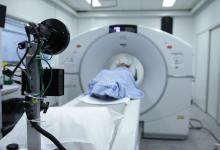Steroids, DMARDs and Biologics have Same Low Risk of Infection During Pregnancy Save

Pregnancy imposes a potential risk for infection. This risk may be further augmented in patients with inflammatory disorders and also compounded if they require systemic steroids, non-biologic agents (DMARDs), or tumor necrosis factor α (TNFi) inhibitors to manage inflammation and their underlying disease.
Desai et al from Harvard have published their analyses of the Medicaid database that included 4961 pregnant women treated with immunosuppressive drugs for rheumatoid arthritis (RA), systemic lupus erythematosus (SLE), ankylosing spondylitis (AS), psoriatic arthritis (PsA), or inflammatory bowel disease IBD).
The first drug (steroid, non-biologic, or TNF inhibitors) filled during pregnancy was assessed for serious infections (SIE) during pregnancy, defined by hospital admission for bacterial or opportunistic infections.
Overall there were only 0.2% SIEs (71/4961) in pregnant women treated with immunosuppressive agents.
Crude incidence rates of serious infections per 100 person years were:
- 3.4 (95% CI 2.5 to 4.7) among 2598 steroid users,
- 2.3 (1.5 to 3.5) among 1587 non-biologic users
- 1.5 (0.7 to 3.0) among 776 TNF inhibitors users
These results show a) a low risk overall - that was highest with corticosteroids; b) no statistically significant differences in SIE risk between the 3 types of therapy; and c) a trend to lower event rates for DMARDs (Hazard Ratio 0.81; 95% CI 0.48 to 1.37) and TNFi (HZ 0.91; 95% CI 0.36 to 2.26) compared to steroids.
Higher doses of steroids were associated with higher rates of SIE during pregnancy, suggesting steroid dose is an independent risk factor of serious infections in pregnancy.
While women receiving immunosuppressives should be closely monitored for SIE during pregnancy, overall rates are low and trend towards lowest with DMARD or TNFi use.










If you are a health practitioner, you may Login/Register to comment.
Due to the nature of these comment forums, only health practitioners are allowed to comment at this time.